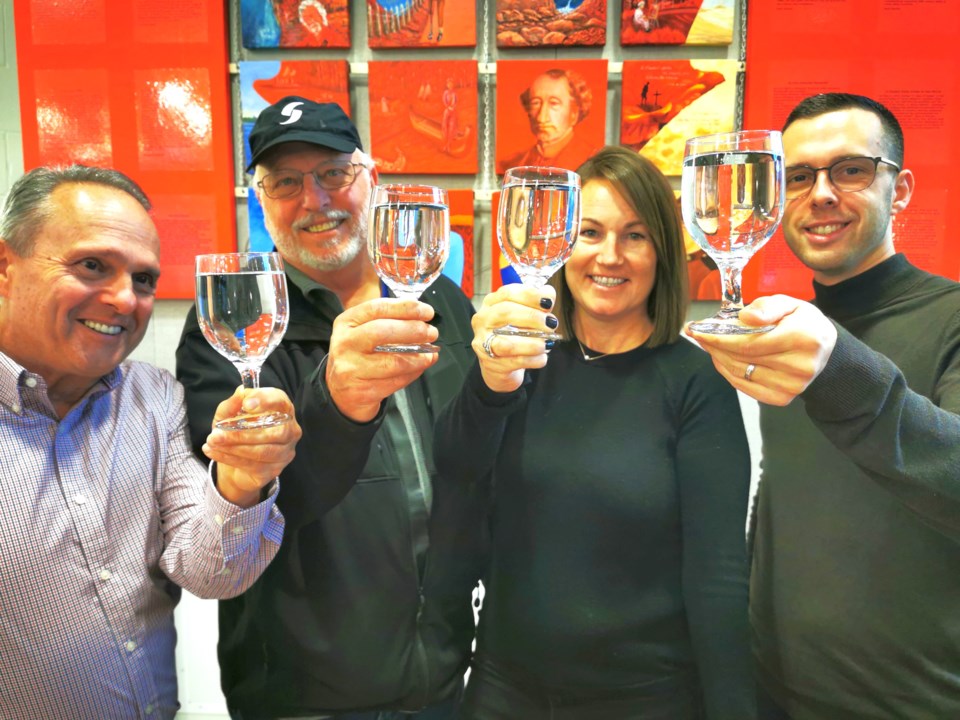The world’s most respected water scientists agree: Springwater Township is home to some of the purest water on Earth.
But to find out why, scientists and researchers are going to spend the next five years investigating everything there is to know about Springwater’s spring water as part of the Elmvale Groundwater Project conducted through the University of Alberta.
Researchers will work to determine where Springwater’s water comes from, how it travels through the various layers of soil, the composition of that soil, what beneficial bugs and microbes are in the soil and how the water and soil are impacted by industrial, commercial and residential uses.
Of particular importance to the lead researchers — Dr. Michael Powell and Dr. Bill Shotyk — is “the connection with various government agencies to assist in enhancing current regulations and decision making as it relates to permits to take water (PTTW), and how this study will promote ongoing and future aggregate extraction in an environmentally responsible fashion.”
Powell, the project’s director, says he understands the needs of the aggregate industry and he’s not against development but he is concerned with folks taking natural resources that have never been inventoried or thoroughly studied.
He said there has been no conclusive study into the region’s water resources. That alone, he added, should be enough for a government or municipality to exercise caution when it comes to land use changes and taking water.
“We may find that that operation (aggregate extraction) has nothing to do with the quality of water or we may find out that it has a lot to do with water quality,” Powell said. “Until we do this study, no one can say, and nobody that has done any kind of reconnaissance on this stuff to get permits for land-use change or water use, none of them have done the work where they can say they won’t impact quality or quantity of the water, even though that’s one of the main criteria for allowing land use change and water taking.”
According to Powell, all water is not created equal — some water is actually better suited for washing aggregates.
“We know this a natural laboratory producing the cleanest water in the world,” he said. “We know what the geochemical processes are, what the microbiological and natural processes are but we don’t know how they relate in the stack of sediments and we don’t know the relative importance of each.”
Powell said the water he’s talking about — the Springwater spring water — is in a relatively small watershed. He calls the water in it “the crown jewel” of Canada’s resources.
“It should be treated like the monarch butterfly is around the world,” Powell said. “It’s more unique than that. And yet, we’re allowing the use of this pure water to wash dirt.”
The research team that has been assembled to study Springwater's water is world-class and will feature leading experts in some highly specialized fields.
Isotopic work that will determine that age and source of the water will be done by scientists from the University of Ottawa. Microbiologists will try to determine the role of microbes in the process. The University of Guelph will provide hydrogeologists and Shotyk’s lab at the University of Alberta will be the go-to facility for trace element geochemistry.
Powell says the project has support from the education sector, the Indigenous community, municipal governments and the public sector.
“We have a network that will be able to use the information we glean as natural science results and turn it into the broader benefits to society,” he said.
Powell says one of the top priorities of this project is to change policy.
“If the results of this project don’t go towards changing policy and attitudes and capacities of all the organizations we’ve partnered with, in order to understand water better, then we will have missed our job.” Powell said. “We don’t want to do that.”



